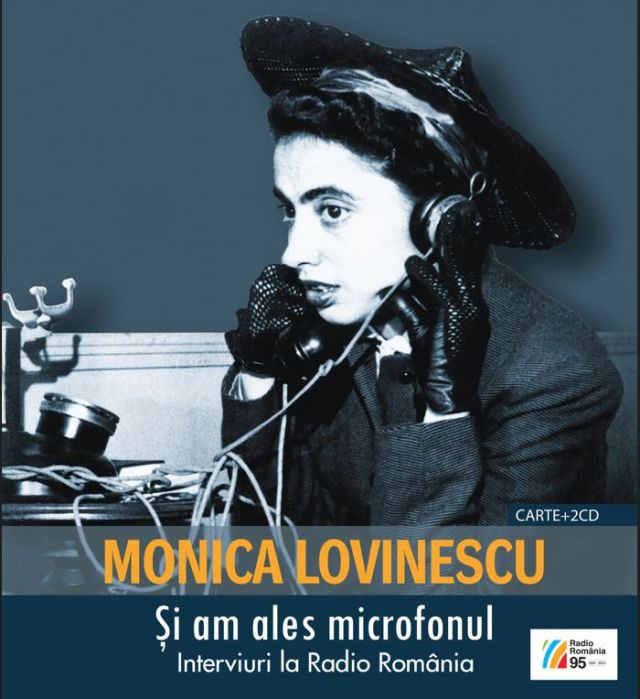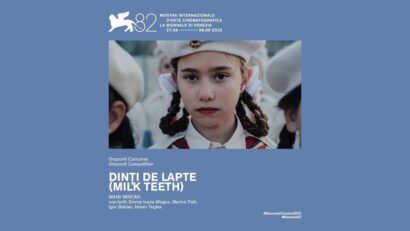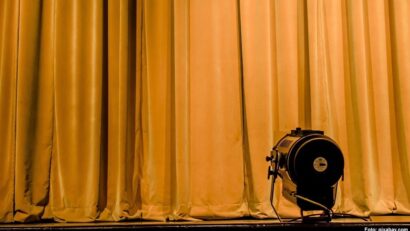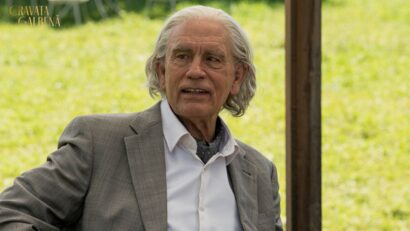Monica Lovinescu at Casa Radio Publishing House
On the centenary of Monica Lovinescu's birth, Casa Radio Publishing House released an album dedicated to the most important female voice of the Romanian exile during Communism

Corina Sabău, 23.12.2023, 14:00
On the centenary of Monica Lovinescu’s birth, Casa Radio Publishing House released an album dedicated to the most important female voice of the Romanian exile during Communism, journalist and literary critic Monica Lovinescu. After graduating from the Faculty of Letters in Bucharest (1946), Monica Lovinescu collaborated with various cultural publications. She obtained a scholarship from the French state in 1947, and went to Paris under risky conditions. Immediately after the forced abdication of King Mihai I, she asked for political asylum in France. After a period in which she directed some avant-garde shows, she devoted herself to the radio, starting in 1951. Starting in 1962, she started working with Radio Free Europe, where she had two weekly shows: Romanian Cultural Current Affairs and Theses and Antitheses in Paris. These shows had a strong influence in Romania, both in the cultural circles and among the general public. Monica Lovinescu wrote articles and studies about Romanian literature and communist ideology in numerous publications: East Europe, Kontinent, Preuves, L’Alternative, Les Cahiers de L’Est, Témoignages, La France Catholique. The album released by Casa Radio Publishing House includes a book and two Cds, and is entitled MONICA LOVINESCU. And I chose the microphone. Interviews on Radio Romania (1993-2004). The album features a presentation by journalist Anca Mateescu, producer at Radio Romania Cultural, who is also the author of the interviews on the two Cds.
Here is Dorin-Liviu Bîtfoi, producer at Casa Radio Publishing House, about Monica Lovinescu and the album released by the publishing house.
“We could say, perhaps quoting a cliché, but with a lot of truth in it, that she is the voice of dignity and the voice of free conscience, both for Romanians in exile and very much for Romanians in the country, who listened to her assiduously on the radio. They listened to her to find out how to live in the free world, but also to be aware of the abuses in the closed world, the world in Romania, the communist world. I really enjoyed working on this book because it is very current, it is very current for those who want to learn about the recent past and its effects, because the effects are still being seen today. It is very interesting to read this book, but also to listen to it, because, as you know, the album also includes an audiobook. The two CDs that include the interviews with Monica Lovinescu are the result of an admirable documentation and consistency, I would say very rare in that period. That’s why I admire the journalist Anca Mateescu, for the tenacity she showed.
To mark one hundred years since the birth of Monica Lovinescu, the Humanitas Aqua Forte Foundation and the Humanitas Publishing House have proposed an exercise of admiration with a rich agenda of events held throughout the entire year 2023 – THE YEAR OF MONICA LOVINESCU. The writer Ioana Pârvulescu, president of the jury of the first edition of the Monica Lovinescu Award, was present at the launch of the album published by the Casa Radio Publishing House.
“This little book has a voice. You’re going to tell me that all books have a voice. Of course, all books have a voice, but this book has the voice of Monica Lovinescu. It is a book that was born from the meeting of two journalists, and I will say here bluntly that I admire Anca Mateescu. She is an extraordinary journalist who, in addition to preparing, asks questions that stimulate you. Asks questions that show she knows what she’s talking about, not questions that clip your wings. Anca Mateescu has this gift of asking the right question, the question that stimulates you, in this book as well. The first interview in this book of interviews with Monica Lovinescu was made when Anca Mateescu was 27 years old, at the beginning of her career as a journalist, and, as the presentation shows, it was not easy for Anca Mateescu to get close to Monica Lovinescu, but in the end she succeeded. And what resulted is an extraordinary testimony. I am convinced that this book will increase in value with each passing year. I was saying that I was particularly interested in the interview in which Monica Lovinescu talks about her father, the critic Eugen Lovinescu, whom she certainly saw as a father, but whose public image she had to accept, that of a literary critic. The interview about Cenaclul Sburătorul, conducted by Eugen Lovinescu, is worthy of literary history, and I will probably recommend it to my students, in this way they will learn more about the literature of the interwar period.
In the dialogues with the journalist Anca Mateescu, the moments that marked Monica Lovinescu’s destiny are recalled: leaving the country and going to Paris, her beginnings as a director in Paris, the meeting with Noël Bernard, journalist, director of the Romanian Service at Radio Europa Liberă, her career in literature , the assassination of the mother, Ecaterina Bălăcioiu-Lovinescu. Also, personalities from the country and from exile are evoked: her father, the critic Eugen Lovinescu, Ion Barbu, Camil Petrescu, Dan Petraşincu, Eugen Ionescu, Ştefan Lupaşcu, Emil Cioran, Ion Negoiţescu, Ion Omescu.






























